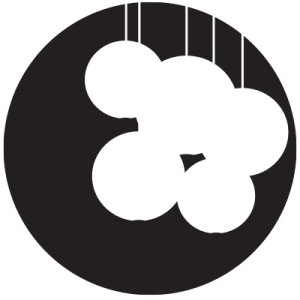I realized, as I was reading some blog coverage of Paper Lantern, that we never really laid out the direction we’re heading in with our work. Sure, we’ve talked about how we’re cleaning up the interface and deeply adopting Twitter Bootstrap and all that stuff, but why? Where is this all going?
As it currently stands, Paper Lantern is very reminiscent of x3. On the index page, there’s top navigation, a “sea of icons” for getting to individual features, and an account information sidebar. On the inner pages, things are highly inconsistent, but, roughly speaking, the forms for creating new objects in the services cPanel manages appear above the list of objects that already exist. Data validation sometimes happens as the user is filling things out and sometimes appears after you submit the form.
Paper Lantern hasn’t yet strayed from x3…but it won’t always be that way. We didn’t set out to just give x3 a facelift; we set out to change the face of cPanel.
So what’s in store? Where are we heading with Paper Lantern?
First, we’re going to focus more on the product’s inexperienced users, without sacrificing the productivity and capabilities that our savvy users enjoy. Inexperienced users want to go from “Zero to Done” in as few steps as possible. Our goal is to make Paper Lantern more lightweight on the surface, while still easily navigable for the most advanced users. Along the way, we’re continually asking ourselves “How can this be simpler?” so inexperienced users can avoid feeling overwhelmed or discouraged before completing their project.
Second, we’re going to make the underlying technologies inside cPanel disappear. Don’t get me wrong; they’re not going away. We’re just going to start paying careful attention to what users WANT to be doing to get their projects done, rather than what we need them to be doing.
All of the current features of cPanel will remain, but we’re going to present them in such a way that users can think in terms of content and communication, rather than in terms of system administration and service management. It’s a matter of where the user encounters complexity – early in the experience, later, or even never. For example, rather than giving equal emphasis to rarely-used features, we’re going to design a user experience that is highly relevant to most projects people might have, and then allow more advanced users to drill down to the more advanced features. Again, nothing’s going away, we’re simply reorganizing the experience.
Next, Paper Lantern will be a more agile code base than x3 ever was. We’re working to better organize the code underneath in order to make future changes easy and better enable customizations. Our customers and partners deserve a cPanel that can adapt quickly to their needs and the needs of their customers. With the sweeping architectural changes we’ve made (and will continue to make) to Paper Lantern, we hope to enable ourselves in the future to respond quicker to, execute more fully, and focus nimbly on what may come.
 At cPanel, we believe that everyone deserves their chance to shine online and focusing on inexperienced users, teaching them what they need to know, enabling them to get their projects done, and embracing what changes may come demonstrates our dedication to that belief. That’s where Paper Lantern is heading. We don’t expect to achieve these goals overnight. Paper Lantern is more than an end-user interface for cPanel, it’s an ideal that we have dedicated ourselves to strive towards.
At cPanel, we believe that everyone deserves their chance to shine online and focusing on inexperienced users, teaching them what they need to know, enabling them to get their projects done, and embracing what changes may come demonstrates our dedication to that belief. That’s where Paper Lantern is heading. We don’t expect to achieve these goals overnight. Paper Lantern is more than an end-user interface for cPanel, it’s an ideal that we have dedicated ourselves to strive towards.
Please consider joining us by switching your account to Paper Lantern, sending us your thoughts and feedback, and participating in the cPanel Forums discussion. If you’re interested, we’re also hiring Developers and UI Specialists to join the team that will change the face of cPanel.

